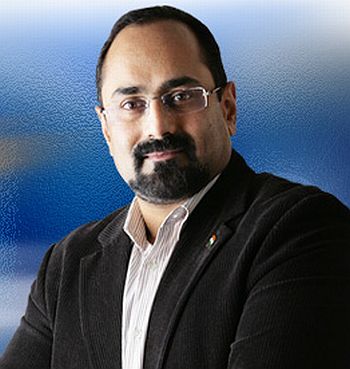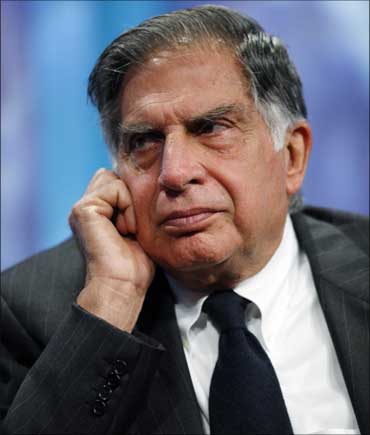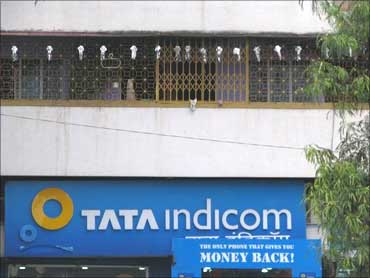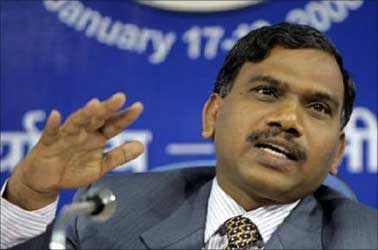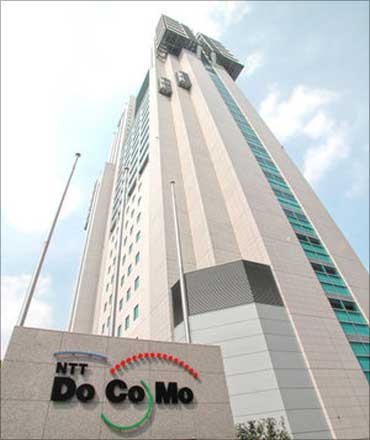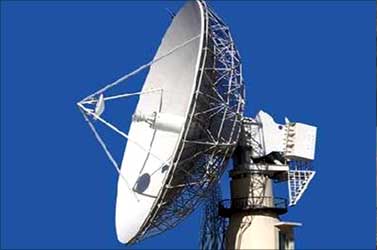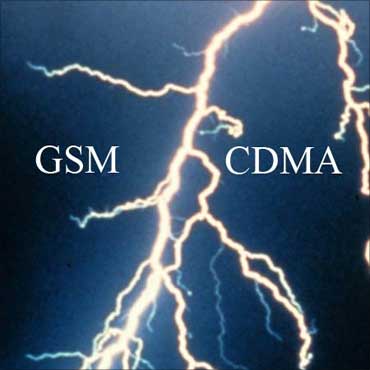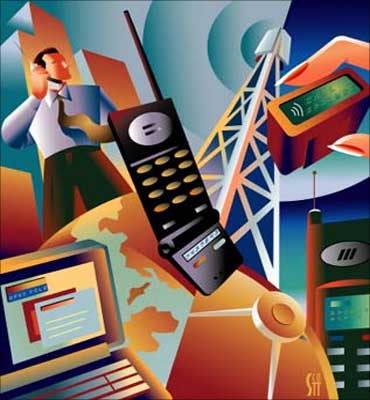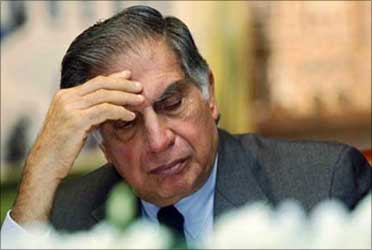 | « Back to article | Print this article |
Spectrum scam: An MP's open letter to Ratan Tata
In an open letter to Tata Sons Chairman Ratan Tata, Member of Parliament Rajeev Chandrasekhar on Monday said that it was the Tata Group which had benefited from out-of-turn allocation of spectrum.
"The dispute between Tatas and Reliance Comm inter se on the allocation sequence cannot dilute the primary fact of bypassing other early applicants to this spectrum," he said.
Chandrasekhar is a former telecom entrepreneur who built BPL Group's telecom business from scratch and fought many wars on regulations before cashing out a few years ago.
Chandrasekhar's letter seeks to convey the impression that the Tata Group kept quiet when it stood to benefit from violations of norms, such as when companies with fixed telephony licences managed get into the mobile space nine years ago.
"Your positions in the recent interviews seem to be in stark contrast with the actual conduct, performance and position of Tata's telecom companies," the letter said.
In response, a spokesperson for Tata Teleservices, the telecom arm of the group, said Chandrasekhar's letter was devoid of facts and just meant to sensationalise matters.
Click on NEXT to read the open letter to Ratan N Tata, Chairman, Tata Sons Ltd...
Spectrum scam: An MP's open letter to Ratan Tata
Dear Mr Tata,
It is with considerable concern and some confusion that I have watched your recent Television Interviews and press statements following the 2G scam and the exposure of the infamous Niira Radia Tapes.
I, as countless other Indians, have held the house of Tatas in great esteem and respect - have seen them as being different from so many other Indian corporates that play by a different set of rules and values.
I, along with many Indians, consider JRD Tata as one of the true builders of modern India.
So, it is with considerable sadness and dismay that I am constrained to write this open letter to you.
I trust you will not consider this as personal, since my letter has to do with issues of principle and conduct that are disturbing.
In your recent press interactions, you have made the point that the 2G scam needs to be investigated and have made several sub-points, including:
- Out-of-turn allocation of spectrum;
- Hoarding of spectrum by incumbent operators; and
- Flip-flop of policy
Let me wholeheartedly agree with you.
Many in media and public life including me, have been saying this for several years now, so your belated realization of these critical issues is very welcome.
Click on NEXT to read more...
Spectrum scam: An MP's open letter to Ratan Tata
I sympathise with your concern about public-policy making in our country sometimes resembling that of a banana republic.
But the forces behind this are helped considerably by the fact that people with power and influence remain silent and passive spectators to this.
So many including I would have welcomed your intervention much earlier, as in the case of the alleged bribing offer 15 years ago, of Rs 15 crore that you referred to only recently.
You will agree that speaking out against corruption is most effective when it is happening and not decades or years later.
Because then it becomes an intellectual post mortem, and not active resistance.
Since I was previously a telecom entrepreneur, there will be a temptation for those that advise you, to attribute agenda and motivations to this letter of mine. But I assure you that there is none.
I write because I believe that there is a need to join you in this debate and necessarily bring to your attention the contradictions between your stand and the position of the Tata Telecom companies, that you may be unaware of, given your senior position in your organisation.
Click on NEXT to read more...
Spectrum scam: An MP's open letter to Ratan Tata
1. Out-of-turn allocation of spectrum
According to the CAG report, the potential loss to the exchequer on account of dual technology licenses at 3G rates is Rs 37,154 crore (Rs 371.54 billion).
By virtue of dual technology - according to the CAG - your company has caused a loss to the exchequer to the tune of approximately Rs 19,074.8 crore (Rs 190.75 billion).
But it is not just this. It is a fact that the Tata Group is a beneficiary of out-of-turn spectrum. In fact, one of the biggest of them all.
It is a fact admitted by the government on affidavit that 575 applications were received for 2G spectrum by October 1, 2007.
Using an illegal and arbitrary cut-off date, Mr Raja processed only 122 applications received till September 25, 2007.
One hundred and ten were rejected and 343 applications were put in abeyance.
Given the fact that there is no 2G spectrum available, these applications received till October 1, 2007 (within the date represented by the government) have now been put in the dustbin.
In fact, the TRAI had already recommended on May 11, 2010 that no more UASL (Unified Access Services Licensing) license with bundled spectrum can be given.
This means that these 343 applications will never be processed and will never see spectrum.
Click on NEXT to read more...
Spectrum scam: An MP's open letter to Ratan Tata
In the meantime, 19 days after these 575 applications were received, the dual technology policy was announced through a press release by Mr Raja.
The Tatas put in their dual technology applications around October 22.
So, in effect, their application went in three weeks after the five hundred and seventy five 2G applications were received.
Today, Tatas already have GSM spectrum allocated and GSM service launched in most of the circles,
But the 343 applications submitted three weeks before the Tata Group have neither been processed nor have any chance of ever being processed - so much for First Come, First Serve.
You will accept that this seems to be a case of arriving late, forming a new queue, jumping the priority and accusing others of getting priority on spectrum allocation and meets your point of out-of-turn allocation of spectrum.
I am sure the 373 applicants who were rejected for no fault of theirs, will agree - while theirs got rejected, the Tata Group has sold its equity for billions of dollars to NTT Docomo based on its out-of-turn GSM allocation on dual technology policy.
In my humble opinion, evidence suggests that the Tatas have benefited from out-of-turn spectrum allocation.
The dispute between the Tatas and Reliance Comm inter se on the allocation sequence cannot dilute the primary fact of bypassing other early applicants to this spectrum.
Click on NEXT to read more...
Spectrum scam: An MP's open letter to Ratan Tata
2. Hoarding of spectrum by incumbent operators
This is an important point you have raised. I concur with you that there is a need for telcos, old or new, to pay market rates for spectrum.
I also completely agree that the subscriber linked criteria allocation of spectrum is flawed and is encouraging fudging and false subscriber numbers.
But I bring to your attention, that this is existing government policy - flawed or unfortunate as it may be, and the only solution to this is to replace this with a new policy.
If by hoarding, you mean having more spectrum than number of subscribers that can be serviced -- then please note that Tata holds spectrum both for GSM and CDMA.
Based on the spectrum that Tata has, its average efficiency is perhaps the lowest amongst the large operators.
Click on NEXT to read more...
Spectrum scam: An MP's open letter to Ratan Tata
Equally, that the CDMA spectrum that Tata holds is 3-4 times more efficient than the GSM operators - by its own admission, which I recall during the WLL scam.
Moreover, Tata has received CDMA and GSM spectrum at 2001 rates.
So even if the hoarding charge was to apply, it would also apply to the Tatas for having maximum cumulative efficiency (CDMA and GSM) to serve the least number of subscribers amongst the incumbents.
Again, I fully support the need to price spectrum beyond 6.2 MHz with incumbent operators at market rates.
But the charge of hoarding that you make applies equally to Tata Tele - whether it is total spectrum held, or subscribers served based on that spectrum, or price paid to acquire such spectrum, vis-a-vis the cumulative efficiency of CDMA and GSM.
Click on NEXT to read more...
Spectrum scam: An MP's open letter to Ratan Tata
3. Flip-flop of policy
In your interview, you have pointed out that a lot of the current dysfunctionality in telecom has arisen from policy changes and flip-flops.
You would recall that one of the most horrific distortions of policy was the infamous WLL scam in 2001 - where telecom companies with fixed service licenses managed to muscle their way into cellular with active support of policy makers of that time - and not to forget that it was all done in the name of benefit to the common man!
You will further recall that in 2003, a convenient set of recommendations by TRAI and the government allowed this illegality to be regularised through the UASL policy, opening the gates to unprecedented and unique (and unheard of) First Come, First Serve form of licensing - bypassing tenders (a form of auction) that were the norm for obtaining cellular licenses till then.
Your company was the beneficiary of this 'policy flip-flop' and you chose to accept the benefits of this flip-flop at that time - despite this blatant violation and distortion.
I am personally aware because I led the fight against it and remember being immensely disappointed at the Tata Group's remarkably self-serving position.
Further, in one of the most mysterious and indefensible acts, Tata Group took on board as a consultant, the very individual, who as the chairman of TRAI was the architect of this UASL and other shames.
Click on NEXT to read more...
Spectrum scam: An MP's open letter to Ratan Tata
So in summary and respectfully, your positions in the recent interviews seem to be in stark contrast with the actual conduct, performance and position of Tatas' telecom companies in each of the three points you have raised.
There are several other questions that deserve answers, including why a group like Tata with its sterling character and reputation requires outside lobbyists to lobby on their behalf!
That, in itself, is enough to shatter one's confidence!
I reiterate that this letter is not meant to tarnish or disrespect or distract from the many achievements of the Tata Group including the acquisition of international brands like Land Rover, Jaguar and its increasingly global footprint.
But I believe, on behalf of many erstwhile supporters of the Tata group, that it is my duty to seek and spotlight the truth.
The Tata Group has a responsibility, and indeed, owes it to its many admirers in India to actually live up to its image of ethical conduct, otherwise your statements and actions will seem to be hypocrisy - something that is already available in plenty in our public and corporate life.
Respectfully,
Rajeev Chandrasekhar
Member of Parliament
New Delhi
06 December, 2010
